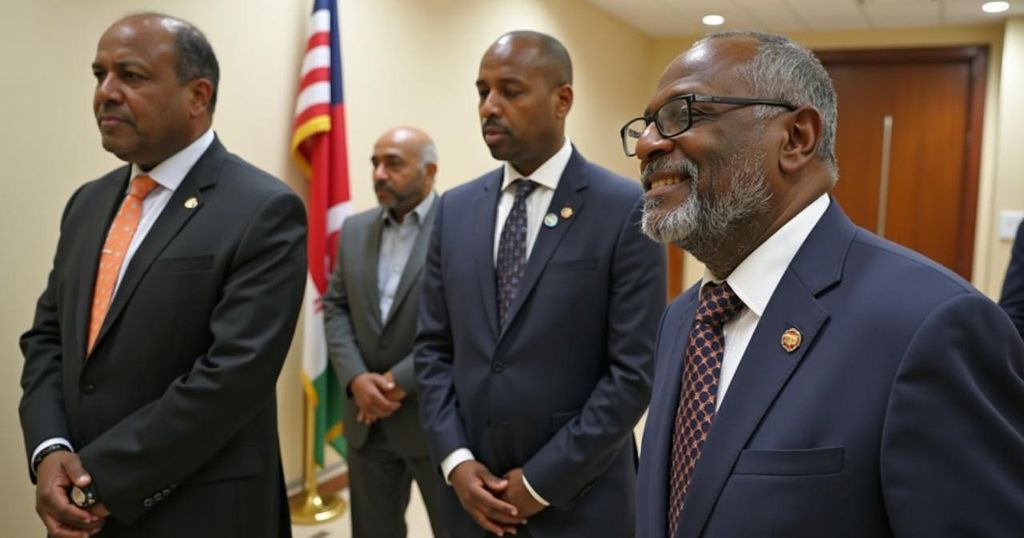The African Union’s delegation, led by Mauritania’s President Mohamed Ould Ghazouani, left Tripoli after an unsuccessful brief visit, as eastern Libyan authorities refused to meet due to diplomatic tensions related to asset access requests from the parallel government, emphasizing the complexities of Libyan political relations.
The delegation from the African Union, led by Mauritanian President and Chairman Mohamed Ould Ghazouani, departed Tripoli following a brief visit that lasted less than one day and notably excluded engagements in the eastern region of Libya. Political analyst Salah Al-Bakoush disclosed that the eastern authorities declined to meet with the delegation due to President Ghazouani’s refusal to accede to a request from Osama Hammad, the Prime Minister of the parallel government operating in the east. Mr. Hammad had sought Mauritania’s assistance to gain access to Libyan assets located within the country, particularly the Chinguitty Bank, previously recognized as the Libyan Bank in Nouakchott. Further complicating diplomatic relations, Hammad allegedly proposed to Nouakchott that he could facilitate the Wagner group’s movements, which have reportedly crossed into Mauritania occasionally and are accused of harboring rebellious leaders from Mali. A visit undertaken by Hammad to Mauritania in late August generated controversy, with pro-government media asserting the official capacity of the visit. This compelled the Mauritanian authorities to clarify through their embassy in Tripoli that the meeting with the visiting Libyan official had occurred at the latter’s request, emphasizing the complex intergovernmental dynamics at play.
The political landscape in Libya is marked by fragmentation and conflict, particularly between the eastern and western administrations. The eastern authorities operate under the Government of National Stability, while the western authorities are led by the Government of National Unity. Mauritania plays a crucial intermediary role in the region, seeking to balance relations and mediate dialogue amidst these divisions. The rejection of the African Union delegation’s visit underscores the sensitive nature of Libyan politics, particularly in light of the proposed access to Libyan assets and the involvement of external forces such as the Wagner group.
In summary, the departure of the African Union delegation following a curtailed visit stems from the refusal of eastern authorities to engage with the Mauritanian President due to significant diplomatic disagreements. The tensions surrounding access to Libyan assets and the implications of the Wagner group’s activities further complicate the already intricate political situation in Libya, highlighting the need for continued dialogue and resolution efforts.
Original Source: libyaobserver.ly




